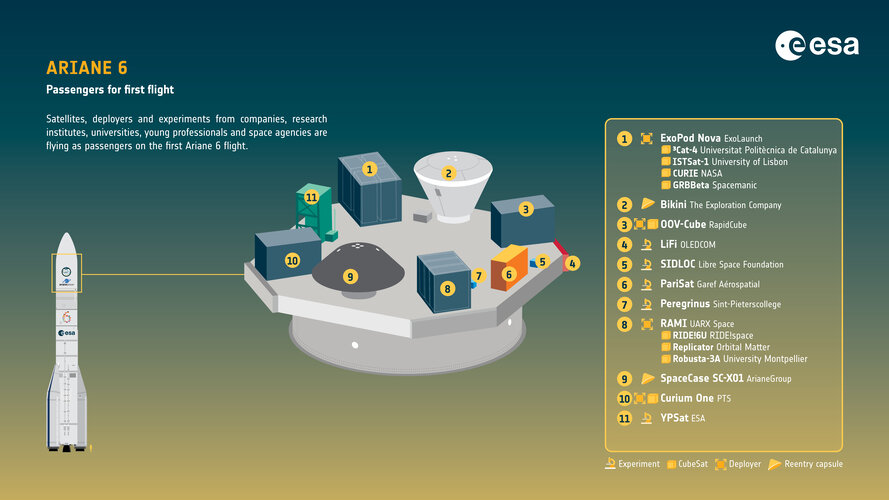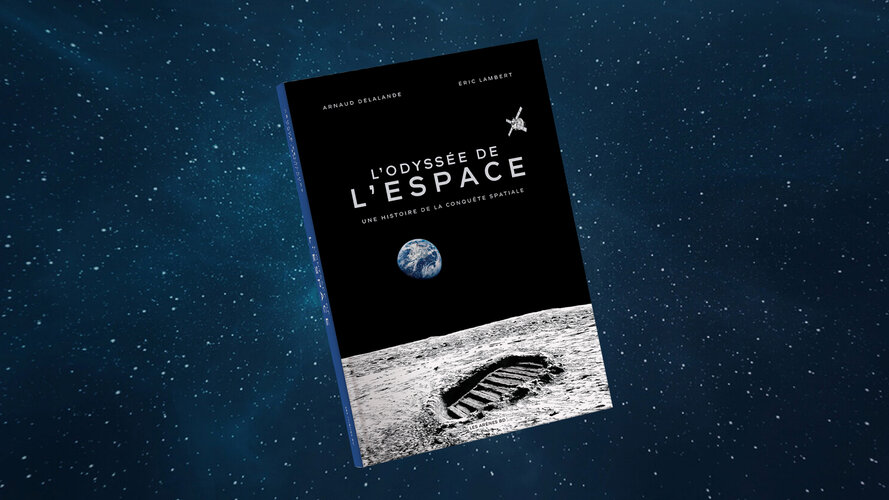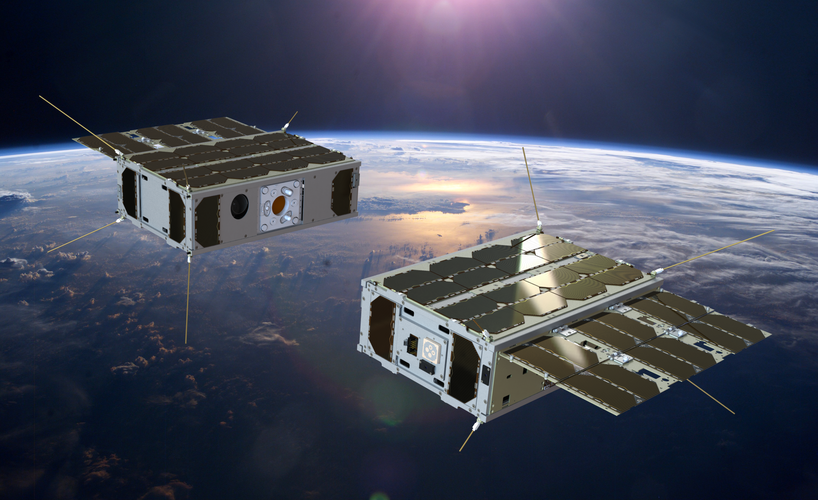World's first high-definition lunar geologic atlas revealed
Tuesday, 14 May 2024 13:28
Sydney, Australia (SPX) May 14, 2024
 The first high-definition geologic atlas of the entire Moon, scaled at 1:2.5 million, was unveiled on April 21.
The atlas, available in Chinese and English, consists of the Geologic Atlas of the Lunar Globe and the Map Quadrangles of the Geologic Atlas of the Moon (including explanatory manual). The Geologic Atlas of the Lunar Globe includes the Geologic Map of the Moon, the Lithologic Map
The first high-definition geologic atlas of the entire Moon, scaled at 1:2.5 million, was unveiled on April 21.
The atlas, available in Chinese and English, consists of the Geologic Atlas of the Lunar Globe and the Map Quadrangles of the Geologic Atlas of the Moon (including explanatory manual). The Geologic Atlas of the Lunar Globe includes the Geologic Map of the Moon, the Lithologic Map
 The first high-definition geologic atlas of the entire Moon, scaled at 1:2.5 million, was unveiled on April 21.
The atlas, available in Chinese and English, consists of the Geologic Atlas of the Lunar Globe and the Map Quadrangles of the Geologic Atlas of the Moon (including explanatory manual). The Geologic Atlas of the Lunar Globe includes the Geologic Map of the Moon, the Lithologic Map
The first high-definition geologic atlas of the entire Moon, scaled at 1:2.5 million, was unveiled on April 21.
The atlas, available in Chinese and English, consists of the Geologic Atlas of the Lunar Globe and the Map Quadrangles of the Geologic Atlas of the Moon (including explanatory manual). The Geologic Atlas of the Lunar Globe includes the Geologic Map of the Moon, the Lithologic Map A new process for the synthesis of rare nuclei in the universe
Tuesday, 14 May 2024 13:28
Berlin, Germany (SPX) May 14, 2024
 A new nucleosynthesis process, called the r-Process, has been proposed by scientists from GSI, and the Max Planck Institute for Astrophysics. This r-Process occurs when neutron-rich material is exposed to a high flux of neutrinos. The theoretical proposal, recently published in "Physical Review Letters," may solve the long-standing issue of the production of certain rare isotopes found in the so
A new nucleosynthesis process, called the r-Process, has been proposed by scientists from GSI, and the Max Planck Institute for Astrophysics. This r-Process occurs when neutron-rich material is exposed to a high flux of neutrinos. The theoretical proposal, recently published in "Physical Review Letters," may solve the long-standing issue of the production of certain rare isotopes found in the so
 A new nucleosynthesis process, called the r-Process, has been proposed by scientists from GSI, and the Max Planck Institute for Astrophysics. This r-Process occurs when neutron-rich material is exposed to a high flux of neutrinos. The theoretical proposal, recently published in "Physical Review Letters," may solve the long-standing issue of the production of certain rare isotopes found in the so
A new nucleosynthesis process, called the r-Process, has been proposed by scientists from GSI, and the Max Planck Institute for Astrophysics. This r-Process occurs when neutron-rich material is exposed to a high flux of neutrinos. The theoretical proposal, recently published in "Physical Review Letters," may solve the long-standing issue of the production of certain rare isotopes found in the so SwRI investigates boiling processes in partial gravity
Tuesday, 14 May 2024 13:28
Los Angeles CA (SPX) May 14, 2024
 Southwest Research Institute (SwRI) is examining how liquids boil under partial gravity in a series of parabolic flights. This internally funded project, conducted with Texas A and M University, aims to understand boiling on different surfaces in partial gravity, which is crucial for future space missions to the Moon or Mars.
"We have so little data about how boiling works in reduced gravi
Southwest Research Institute (SwRI) is examining how liquids boil under partial gravity in a series of parabolic flights. This internally funded project, conducted with Texas A and M University, aims to understand boiling on different surfaces in partial gravity, which is crucial for future space missions to the Moon or Mars.
"We have so little data about how boiling works in reduced gravi
 Southwest Research Institute (SwRI) is examining how liquids boil under partial gravity in a series of parabolic flights. This internally funded project, conducted with Texas A and M University, aims to understand boiling on different surfaces in partial gravity, which is crucial for future space missions to the Moon or Mars.
"We have so little data about how boiling works in reduced gravi
Southwest Research Institute (SwRI) is examining how liquids boil under partial gravity in a series of parabolic flights. This internally funded project, conducted with Texas A and M University, aims to understand boiling on different surfaces in partial gravity, which is crucial for future space missions to the Moon or Mars.
"We have so little data about how boiling works in reduced gravi China sends experimental satellite into orbit with Long March 4C rocket
Tuesday, 14 May 2024 13:28
Sydney, Australia (SPX) May 13, 2024
 An experimental satellite was launched into space aboard a Long March 4C carrier rocket on Sunday morning from the Jiuquan Satellite Launch Center, situated in the Gobi Desert of northwestern China.
The launch occurred at 7:43 am, with the rocket successfully placing the Shiyan 23 satellite into its predetermined orbits, as stated by China Aerospace Science and Technology Corp, a prominent
An experimental satellite was launched into space aboard a Long March 4C carrier rocket on Sunday morning from the Jiuquan Satellite Launch Center, situated in the Gobi Desert of northwestern China.
The launch occurred at 7:43 am, with the rocket successfully placing the Shiyan 23 satellite into its predetermined orbits, as stated by China Aerospace Science and Technology Corp, a prominent
 An experimental satellite was launched into space aboard a Long March 4C carrier rocket on Sunday morning from the Jiuquan Satellite Launch Center, situated in the Gobi Desert of northwestern China.
The launch occurred at 7:43 am, with the rocket successfully placing the Shiyan 23 satellite into its predetermined orbits, as stated by China Aerospace Science and Technology Corp, a prominent
An experimental satellite was launched into space aboard a Long March 4C carrier rocket on Sunday morning from the Jiuquan Satellite Launch Center, situated in the Gobi Desert of northwestern China.
The launch occurred at 7:43 am, with the rocket successfully placing the Shiyan 23 satellite into its predetermined orbits, as stated by China Aerospace Science and Technology Corp, a prominent SWISSto12 provides RF products to Northrop Grumman for GEOStar-3 satellite program
Tuesday, 14 May 2024 13:28
Berlin, Germany (SPX) May 13, 2024
 St12 RF Solutions, the US-based division of SWISSto12, has successfully developed, qualified, and delivered three integrated RF Antenna Feed Chains for the Northrop Grumman commercial GEOStar-3 satellite. The qualification was completed in January 2024, with the delivery of these feed chains marking a key milestone in payload integration for the satellite.
The RF Antenna Feed Chains, featu
St12 RF Solutions, the US-based division of SWISSto12, has successfully developed, qualified, and delivered three integrated RF Antenna Feed Chains for the Northrop Grumman commercial GEOStar-3 satellite. The qualification was completed in January 2024, with the delivery of these feed chains marking a key milestone in payload integration for the satellite.
The RF Antenna Feed Chains, featu
 St12 RF Solutions, the US-based division of SWISSto12, has successfully developed, qualified, and delivered three integrated RF Antenna Feed Chains for the Northrop Grumman commercial GEOStar-3 satellite. The qualification was completed in January 2024, with the delivery of these feed chains marking a key milestone in payload integration for the satellite.
The RF Antenna Feed Chains, featu
St12 RF Solutions, the US-based division of SWISSto12, has successfully developed, qualified, and delivered three integrated RF Antenna Feed Chains for the Northrop Grumman commercial GEOStar-3 satellite. The qualification was completed in January 2024, with the delivery of these feed chains marking a key milestone in payload integration for the satellite.
The RF Antenna Feed Chains, featu Maritime Launch Secures Conditional $12.9M Term Sheet from Canadian Government
Tuesday, 14 May 2024 13:28
Los Angeles CA (SPX) May 14, 2024
 Maritime Launch Services Inc. has received a conditional term sheet for a $12.9 million contribution administered under the Strategic Innovation Fund (SIF). The funding will support Maritime Launch in developing Spaceport Nova Scotia, preparing for a first orbital launch from Nova Scotia, Canada, in 2025.
The term sheet from the Government of Canada proposes $12.9 million in project cost r
Maritime Launch Services Inc. has received a conditional term sheet for a $12.9 million contribution administered under the Strategic Innovation Fund (SIF). The funding will support Maritime Launch in developing Spaceport Nova Scotia, preparing for a first orbital launch from Nova Scotia, Canada, in 2025.
The term sheet from the Government of Canada proposes $12.9 million in project cost r
 Maritime Launch Services Inc. has received a conditional term sheet for a $12.9 million contribution administered under the Strategic Innovation Fund (SIF). The funding will support Maritime Launch in developing Spaceport Nova Scotia, preparing for a first orbital launch from Nova Scotia, Canada, in 2025.
The term sheet from the Government of Canada proposes $12.9 million in project cost r
Maritime Launch Services Inc. has received a conditional term sheet for a $12.9 million contribution administered under the Strategic Innovation Fund (SIF). The funding will support Maritime Launch in developing Spaceport Nova Scotia, preparing for a first orbital launch from Nova Scotia, Canada, in 2025.
The term sheet from the Government of Canada proposes $12.9 million in project cost r NASA names David Salvagnini as chief artificial intelligence officer
Tuesday, 14 May 2024 13:28
Washington DC (UPI) May 13, 2024
 David Salvagnini, NASA's chief data officer, will take on the expanded role of chief artificial intelligence officer, the agency announced Monday.
"Artificial intelligence has been safely used at NASA for decades, and as this technology expands, it can accelerate the pace of discovery," NASA Administrator Bill Nelson said in a news release.
"It's important that we remain at the f
David Salvagnini, NASA's chief data officer, will take on the expanded role of chief artificial intelligence officer, the agency announced Monday.
"Artificial intelligence has been safely used at NASA for decades, and as this technology expands, it can accelerate the pace of discovery," NASA Administrator Bill Nelson said in a news release.
"It's important that we remain at the f
 David Salvagnini, NASA's chief data officer, will take on the expanded role of chief artificial intelligence officer, the agency announced Monday.
"Artificial intelligence has been safely used at NASA for decades, and as this technology expands, it can accelerate the pace of discovery," NASA Administrator Bill Nelson said in a news release.
"It's important that we remain at the f
David Salvagnini, NASA's chief data officer, will take on the expanded role of chief artificial intelligence officer, the agency announced Monday.
"Artificial intelligence has been safely used at NASA for decades, and as this technology expands, it can accelerate the pace of discovery," NASA Administrator Bill Nelson said in a news release.
"It's important that we remain at the f Ariane 6 infographic: first passengers
Tuesday, 14 May 2024 12:53 Image:
Ariane 6 infographic: first passengers
Image:
Ariane 6 infographic: first passengers India plans Chandrayaan-4 moon sample return, will involve private sector
Tuesday, 14 May 2024 10:31

NASA selects proposals for new line of Earth science missions
Tuesday, 14 May 2024 10:17

A cosmic chronicle
Tuesday, 14 May 2024 08:00
Are you ready for the greatest story ever told? Launched in France on 25 April 2024, Space Odyssey is the first complete history of space in graphic novel form. Drawing on the latest scientific and historical sources, it tells the story of the men and women who pioneered humankind's journey into space.
One step closer to a CubeSat swarm mission
Tuesday, 14 May 2024 06:49
The next revolution in space technology could be using swarms of small spacecraft working together rather than one much bigger spacecraft. Following an open call for ideas, ESA selected seven projects for mission/system concept study. On 26 April the teams showcased their work in ESA's Concurrent Design facility. Two studies were selected for further development.
Terran Orbital confirms new satellite deal with Lockheed Martin ahead of earnings
Monday, 13 May 2024 19:05





